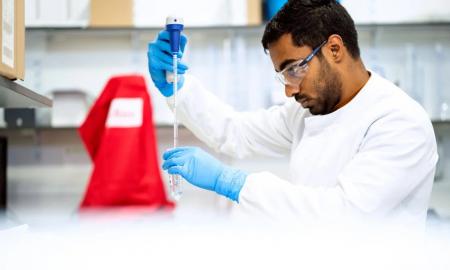Sometimes, the problem is not so big; the fear of facing it makes the situations worse. In general, an anal fissure is a tear or cut in the skin lining the opening of the anus. As a result, it causes pain and bleeding during the passage of stool. It is a common problem which affects both male and female of different age group. Age, sexual practice, smoking and factors like that have nothing to do with the fissure.
It can be treated better if diagnosed sooner. However, patients don’t want to talk about that part of the body. They feel embarrassed in discussing and inviting a physician to take a look.
In general, the probability of occurring fissure in the posterior midline of the anus is higher than in the anterior midline. However, there are small numbers of cases in which patients may suffer from fissures in both posterior and anterior midline. People often misunderstand fissure as hemorrhoids and become a physician of their own to cure them. In both cases, patients experience excessive pain and bleeding; however, hemorrhoids are the collection of tissue which gets swollen in or around the anus.
High anal sphincter pressure and reduced blood supply are the core reasons for tearing in the inner lining of the anus. A hard and dry bowel movement, diarrhea and many more are responsible for increasing trauma inside the anus. There are two types of fissures- acute fissure and chronic fissure.
Fissure which lasts for less than six weeks and can be feel or appear as a paper tear or crack are acute anal fissure; whereas, fissures which are 8-12 weeks old and have a swelling or scar tissue are chronic anal fissures.
Undoubtedly, there are many treatments like medicines, surgery, laser treatments which are available in the health care industry to cure anal fissure. However, patients’ perceptions and humiliation create difficulty in diagnosis and treatment.
Nitroglycerin ointment:
Nitroglycerin Is one of the most commonly prescribed medication which compounded with petroleum ointment to cure both acute and chronic anal fissures. Nitroglycerine relaxes the internal anal sphincter muscle to decrease the pressure and to increase blood supply for quick healing. Recurrence rates of fissures are higher with nitroglycerin than with surgery.
Surgical treatments:
When chronic fissures don’t respond to medicines, then there are some surgical options to cure them.
- Botulinum A toxin ( Botox ) injection:
When medicines don’t work for a patient, then the physician injects the Botox into the internal anal sphincter to promote relaxation to it or reduce muscle tension. Botulinum A toxin or Botox is a neurotoxic protein whose effect usually lasts for three months such that fissures get cured in that given period.
As the anal region is quite sensitive so this process for treatment of anal fissures starts with an administration of general anesthesia. Anesthesia makes the patient unconscious, and he/she will not need to experience any pain. Next, Botulinum Toxin is injected into the patient’s sphincter muscle which surrounds the anus. The entire process takes 25-30 minutes to complete. The degree of complications and side effects for this process vary person to person and the fissure stage.
- PLIS ( Partial Lateral Internal Sphincterotomy )
In this process, after administering anesthesia, the physician makes a small cut in the internal sphincter to treat fissures. It offers relief from pain during bowel movements; however, it requires skill and expertise to perform the surgery.
- Laser treatment for anal fissure:
If you are afraid of cuts or stitches, then this laser anal fissure treatment surgery is best option to get rid of permanently. In this process, laser energy is used to operate fissures. It offers long term satisfactory results against pain and discomfort. There are innumerable benefits of having laser treatment over others. Some of them are:
- Low pain score
- Quicker recovery
- As mentioned earlier, there is no cut or incision so minimum risks of incontinence
- No postoperative pain and discomfort
- Being a simple process, patients can engage in their routine work immediately after the treatment
Remember, on-time treatment doubles the chances of positive results for any health problem. So, if you or your near-dear ones are suffering from anal fissure, then don’t be late to consult a colon or rectal specialist.






